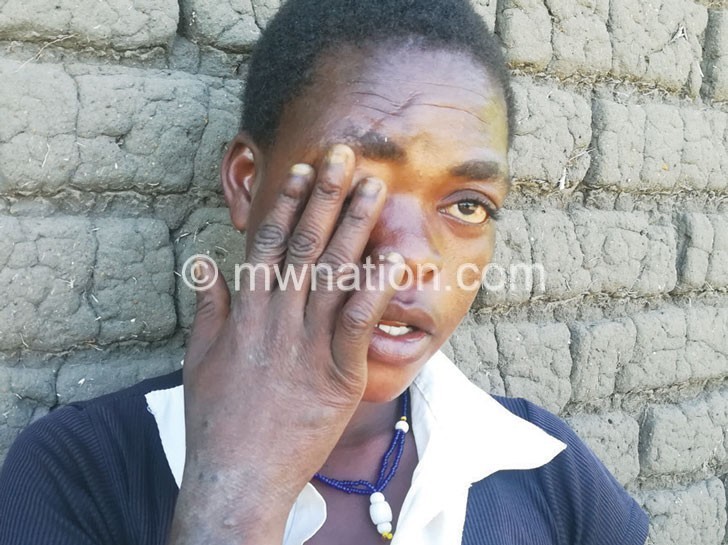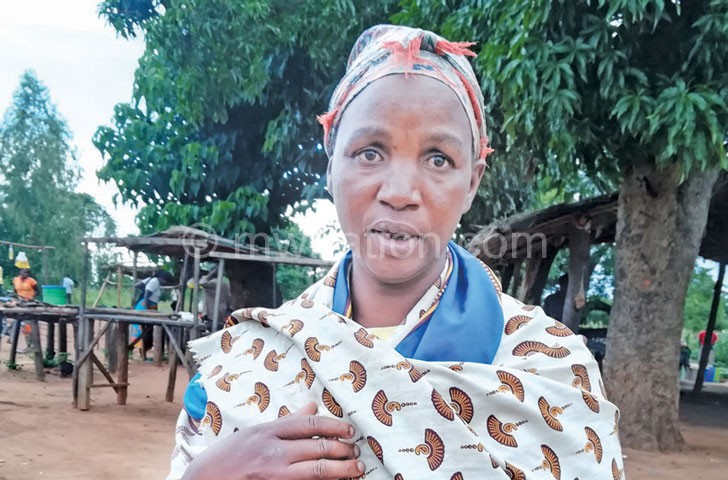Families push for timely justice on albino cases
Families of the victims of the abductions and killings of persons with albinism (PWAs) have said they have lost faith in the country’s justice system due to the snail’s pace in the handling court cases.
This comes at a time some key suspects in abductions and killings of PWAs are being released by police or acquitted in court on grounds of insufficient evidence while some cases are taking as long as four years to try.

When Nation on Sunday visited some of the families in Machinga last month, they said the way the Judiciary is handling the cases leaves a lot to be desired, despite some quarters in the system vowing to fight for justice.
Edna Sidreck is the mother of seven-year-old Harry Mokoshoni who was abducted at Mpakati Village in February 2015, but it was only his head that was found four days later at Laluwere Village, both in Traditional Authority Chikweo in the district. That case remains active.
Sidreck said the country’s Penal Code needs to be revised, to punish offenders stiffly.
She said she is patiently waiting for justice in the murder of one of her twin albino sons.

country’s judicial system
In this particular case, four people—including Sidreck’s uncle Elias Chatha—were arrested and are on remand.
“I am surprised why the court is taking long to conclude the murder case of my son. It is now four years since he was murdered, but the case is still pending in court.
“The criminals who murdered my son also left me with a scar on the forehead. They could have killed all of us in the house. I think the laws of Malawi must be revised so that whoever kills should also be killed,” she said, pointing at the scar on her forehead.
On her part, Margret Chikopa of Nsanama Village in Paramount Chief Kawinga in the same district, whose two year-old-son Ibra Pilo was abducted in 2016, said she had lost faith in the country’s justice system as all four main suspects, including her husband Ibrahim Pilo, were acquitted by the court.
“It pains me when I meet some of the main suspects, who were arrested in the abduction of my son, but were acquitted. Some of them are now enjoying their lives while I am still mourning my son. I don’t understand the country’s judicial system,” she said.
The family of 22-year-old McDonald Masambuka, of Duwamaka Village in T/A Nkoola in the district, who was murdered in the area, is also faulting the judicial system for delaying to conclude the case.
The deceased’s father, Adaki White Masambuka, said 13 months after the brutal murder of his son, the family is still waiting for justice.
He said the country’s justice system does not favour the poor rural masses.
“These laws need to be interpreted to us poor people in the village. If we were rich, I am sure the case could have been concluded by now,” he lamented.
Masambuka’s case has since been transferred to the High Court Criminal Division at the Principal Registry in Blantyre. This was after Zomba trial judge Zione Ntaba recused herself from the case as one of the witness has named her uncle Dr Hetherwick Ntaba in the case.
According to Machinga Police Station spokesperson Davie Sulumba, since 2015, the district has recorded 23 PWA-related cases. He said the cases include murder, abduction and illegal possession of human tissue.
Last June, Amnesty International urged Malawi to overhaul its criminal justice system to protect people with albinism who risk mutilation and murder for body parts that are prized in black magic.
The global rights group said at the time that although 148 attacks have been reported to police since November 2014, there had only been two successful prosecutions and most cases remain unresolved.
The United Nations’ top expert on albinism, Ikponwosa Ero, told Thomson Reuters Foundation last year that body parts could fetch tens of thousands of dollars in the underground trade, which extends to neighbouring Mozambique and Tanzania.
Ero has previously said people with albinism—a lack of pigmentation in the skin, hair and eyes—are at risk of “extinction” in Malawi because of the violence.
Amnesty said in a report that less than a third of reported attacks had been dealt with and called for all pending cases to be concluded promptly.
Deprose Muchena, Amnesty’s Southern Africa director, said the authorities must immediately end impunity for “these vile, hateful crimes”.
“The Malawian authorities must ensure that people with albinism no longer live in fear of organised criminal gangs who prey on their body parts,” he added in a statement.
“The government must overhaul the judicial system to guarantee (their) security and safety.”
The report said the 148 cases included 14 murders and seven attempted murders, according to police figures, but Amnesty said it had found that at least 21 people had been killed since 2014.
Ero suggested Malawi seek international support to ramp up investigations and prosecutions.
“The numbers alone tell you something is not right. The response is failing, if there is one. Something has to be done to make this more of a priority for the government,” she said.
The Association of People with Albinism in Malawi (Apam) has also been pushing government to do more by, among other things, holding vigils and other forms of protests.
On its part, the Malawi Government has said it is doing all it can to protect the people living with albinism by, among other things, increasing funding to the fight and coming up with a long-term and sustainable action plan to combat these violent crimes.
The problem, argues Capital Hill, is that critics have politicised this crisis instead of contributing solutions to the problem.





